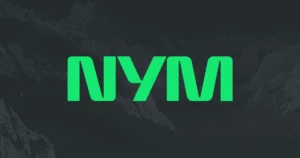
As PKI Sprawl Increases, It’s Time For A Modern Approach
In today’s digital landscape, public key infrastructure (PKI) has been the cornerstone of trust for nearly three decades. Its role in securing web pages, encrypting files and authenticating users has become so ubiquitous that it is often overlooked as a critical component of an organization’s security posture. However, as the technology continues to evolve, it is essential that businesses take a modern approach to their PKI strategy.
One significant challenge facing many organizations today is the proliferation of disjointed PKI systems. As enterprises grow through organic means or mergers and acquisitions, they often find themselves with multiple PKI implementations, each managed by different teams with unique skill sets and processes. This lack of visibility and control increases the risk of security breaches and compliance issues.
The issue of certificate management is particularly pertinent. A 2021 study revealed that a typical enterprise manages nearly 60,000 certificates. With lifespans limited to just a few years, automation for renewal and revocation becomes more crucial than ever before. Moreover, PKI systems must now support public and private use cases, accommodating the ever-changing needs of various business applications.
To mitigate these risks and ensure seamless integration with existing infrastructure, organizations require a comprehensive PKI system that can handle diverse workloads, including end-user devices, virtual machines, containers, and more. This new approach should be adaptable to any workload, allowing businesses to focus on high-level strategies rather than managing individual components.
A modern PKI system must also provide advanced analytics and reporting capabilities. This enables organizations to anticipate potential issues proactively, such as certificates nearing expiration or policy violations. The system should also integrate with software in the enterprise ecosystem, including cloud services and DevOps infrastructure providers, to ensure a seamless experience across all platforms.
Adopting a modern PKI strategy is not only about streamlining management but also about preparing for future security threats. With the advent of quantum computing on the horizon, organizations must be able to rapidly implement large-scale post-quantum cryptography to remain secure.
While transitioning to a modern PKI system may require a significant effort, it is crucial that businesses take this journey seriously. The first step lies in identifying and inventorying existing cryptographic assets, followed by prioritizing critical business use cases. This approach will enable organizations to deliver maximum impact quickly while minimizing disruption.
In conclusion, as the need for robust security measures continues to grow, it is no longer sufficient for enterprises to rely on outdated PKI systems. By centralizing policy and governance instead of focusing solely on hardware or infrastructure, businesses can ensure a resilient environment that stays ahead of emerging threats.
Source: https://www.forbes.com/councils/forbestechcouncil/2025/03/31/as-pki-sprawl-increases-its-time-for-a-modern-approach/


